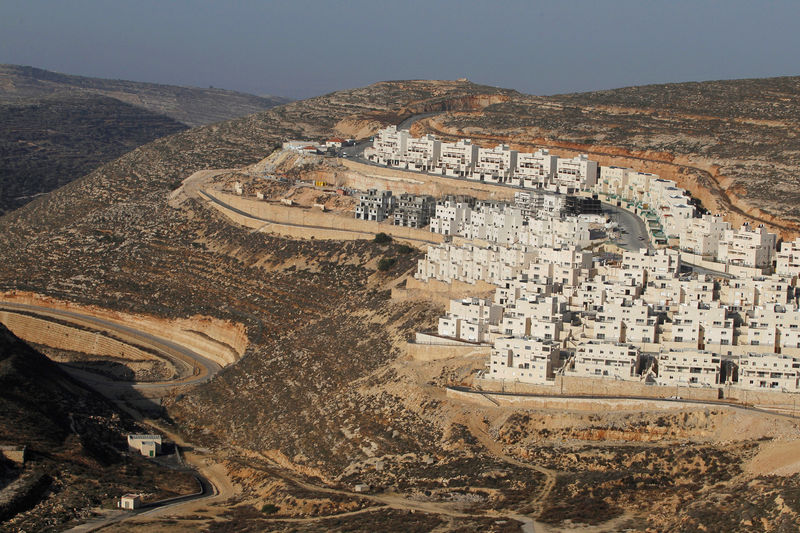JERUSALEM (Reuters) - Israel approved on Wednesday 284 new housing units in Jewish settlements in the occupied West Bank at a time of heightened international concern over a construction drive on land Palestinians seek for a state.
The decision by the military-run Civil Administration in the West Bank came two days after a senior U.N. envoy said in a statement to the Security Council that a surge in such building, which most countries view as illegal, presented an obstacle to peace with the Palestinians.
Israel, which captured the West Bank in a 1967 war, rejected the criticism by Nickolay Mladenov, the U.N.'s special coordinator for the Middle East peace process. It said Jews had lived in Judea, the biblical term for the West Bank, for thousands of years.
A Civil Administration planning committee gave the go-ahead for the construction of a 234-unit nursing home in Elkana, 30 houses in Beit Arye and 20 dwellings in Givat Zeev, according to Peace Now, an Israeli group that monitors and opposes settlement-building.
In addition, 179 building permits were issued retroactively, legalising under Israeli law housing units that were erected in the settlement of Ofarim, Peace Now said.
Responding to Mladenov's comments, Palestinian Prime Minister Rami Hamdallah called on the international community to put pressure on Israel to stop settlement activity.
Last week, the left-wing Israeli daily, Haaretz, reported that Israel plans to expand the Jewish settlement in the West Bank city of Hebron for the time in more than a decade.
Some 1,000 settlers, protected by Israeli troops, live among 230,000 Palestinians in Hebron and the area is a frequent flashpoint of violence.
A report issued in July by the Middle East peace "Quartet" - the United States, United Nations, European Union and Russia - called on Israel to "cease the policy of settlement construction and expansion". It said at least 570,000 Israelis live in settlements.
Israeli-Palestinian peace talks collapsed in 2014.
